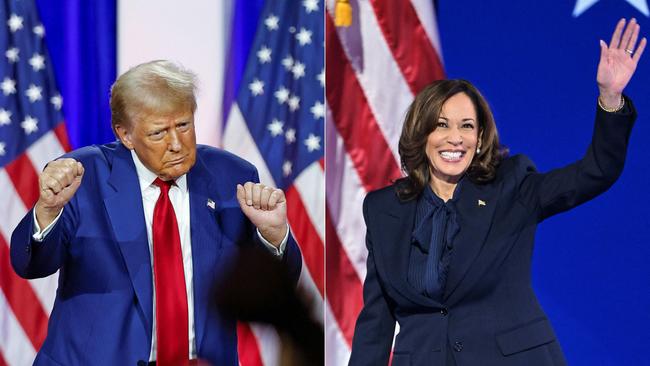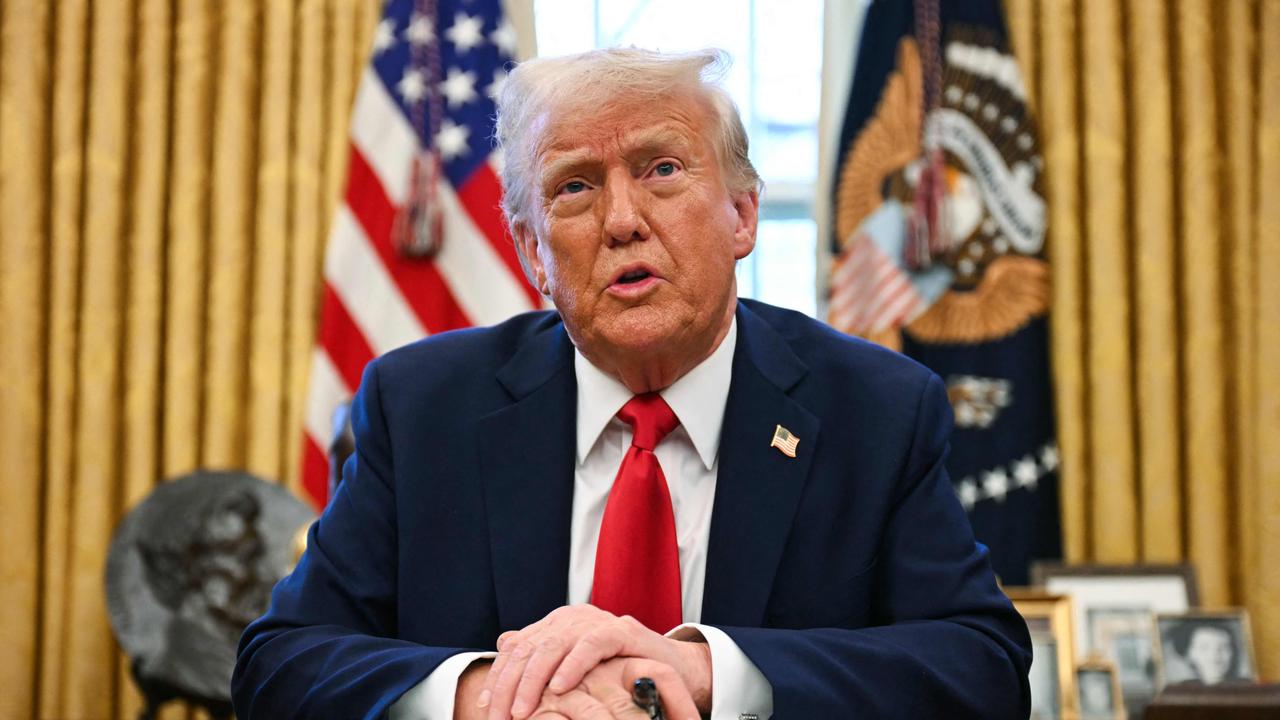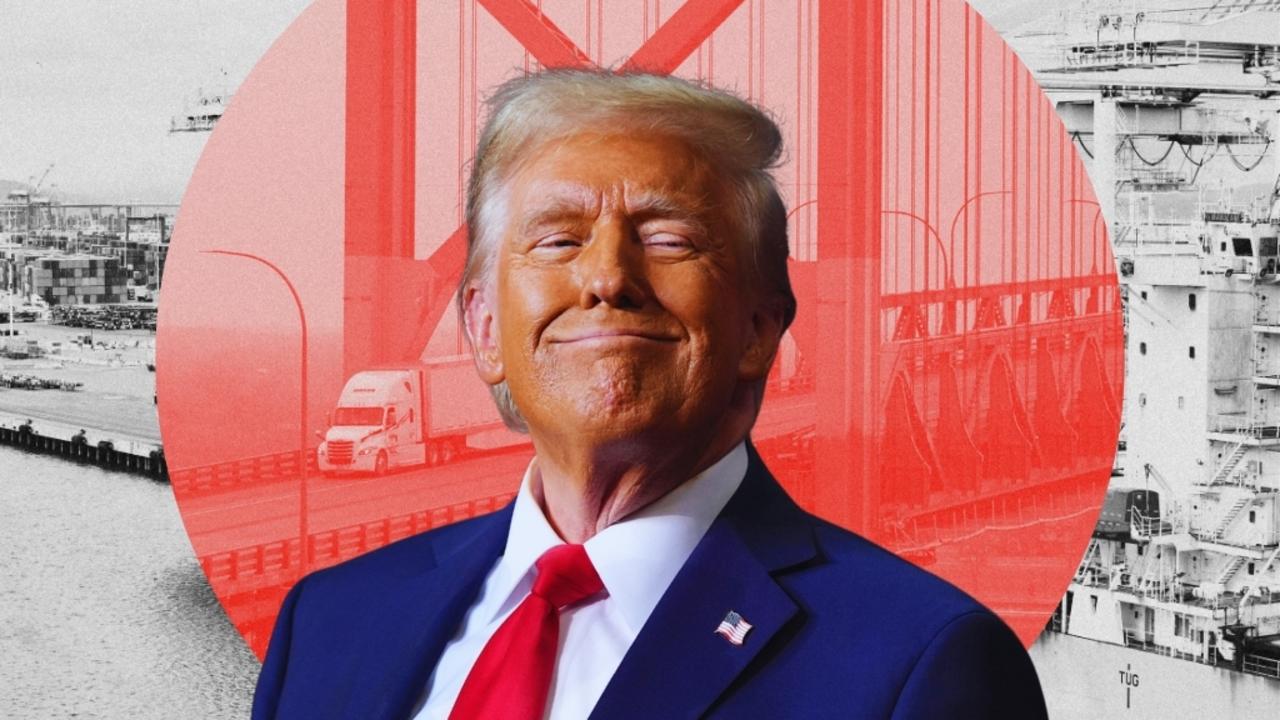Donald Trump’s budget vows carry $11 trillion price tag
Former president’s tax, spending ideas add up to more red ink than those of vice president, new analysis shows

Donald Trump’s flurry of recent tax-cut promises pushed his fiscal plan deep into red ink, and he would increase budget deficits by more than twice as much as Democrat rival Kamala Harris would, according to a new study that is among the most comprehensive estimates to date of the candidates’ proposals.
Mr Trump’s combination of tax cuts, tariff increases, military expansion and mass deportations would widen budget deficits by an estimated $US7.5 trillion ($11.1 trillion) over the next decade, according to the Committee for a Responsible Federal Budget, a nonpartisan group that favours lower deficits.
Meanwhile, Ms Harris’s plans – social policy spending, middle-class tax cuts and tax increases on corporations and high-income households – would increase deficits by $US3.5 trillion.
Those higher deficits would come atop the $US22 trillion in budget deficits the US is on pace to generate over the decade if congress does nothing.
After several rounds of tax cuts and emergency spending, the US publicly held debt now exceeds $28.3 trillion. That debt is now about equal to the size of the economy. And even without new policies, the country’s debt load as a percentage of gross domestic product is already slated to push past its post-World War II records, thanks to the ageing US population and a structural gap between the government’s revenue and its spending.
Economists warn that the country’s rising debt creates risk, but for now US growth has remained solid and the country isn’t in a fiscal crisis.
The presidential candidates have focused more on their promises to voters than on the spending cuts or tax increases that would pay for those policies. Both have proposed policies that could boost economic growth – business tax incentives and tax cuts that give consumers more money to spend – while both also have policies that would cut the other way, such as Ms Harris’s tax increases and Mr Trump’s tariffs.
Under both plans, the national debt would keep growing faster than the economy, according to the study.
“Obviously, neither of them is moving in the direction of stabilising the debt,” said Marc Goldwein, CRFB senior vice-president.
Mr Trump, in particular, has layered proposed tax cuts on top of tax cuts. In addition to calling for extensions of his 2017 tax cuts, which expire at the end of next year, he has promised to eliminate taxes on tips, social security benefits and overtime pay. And he promised to restore the deduction for state and local taxes, which the 2017 tax law capped at $US10,000.
His tariffs and energy policies don’t come close to making up the difference, according to the study.
“President Trump started promising a new tax cut at every rally and those really added up,” Mr Goldwein said. “Six weeks ago, they were kind of similar. That’s no longer the case.”
Campaign plans are often far vaguer than eventual legislation, and estimating even clear policies isn’t an exact science. For example, congressional scorekeepers and the US Treasury Department are $US469bn apart in their estimates of the impact of raising the corporate tax rate to 28 per cent. Mr Trump’s deficits could be as low as $US1.45 trillion and as high as $US15.15 trillion, while Ms Harris’s could be as low as break-even and as high as $US8.1 trillion, according to the analysis.
Ms Harris has promised to prevent tax increases on households that earn less than $US400,000, which would require extending most of Mr Trump’s expiring tax cuts. She also has called for expanded tax credits for families with children, first-time home buyers and some companies, in addition to new federal investments in paid leave and childcare.
Ms Harris has endorsed many of President Joe Biden’s proposed tax increases, including higher levies on capital gains and corporate profits. A Harris campaign representative disagreed with the analysis and said that as president, her budgets would reduce deficits.
And although her economic policy agenda says she wants to pay for policies and reduce budget deficits, that will prove difficult in practice given the opposition to higher taxes, Mr Goldwein said.
“I do believe they will try to govern that way,” he said.
“The menu of offsets is a lot of really, really hard stuff.”
The Wall Street Journal


